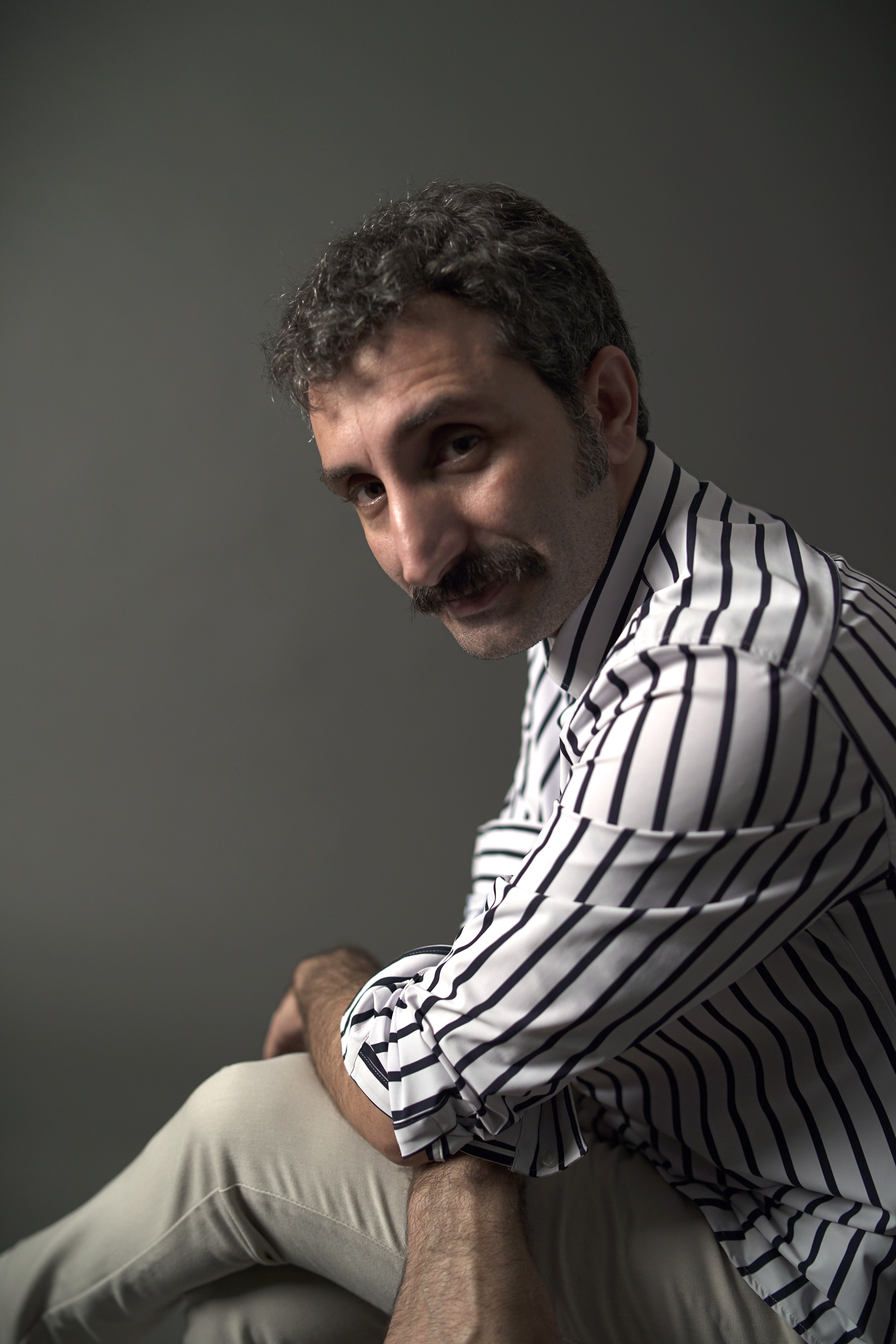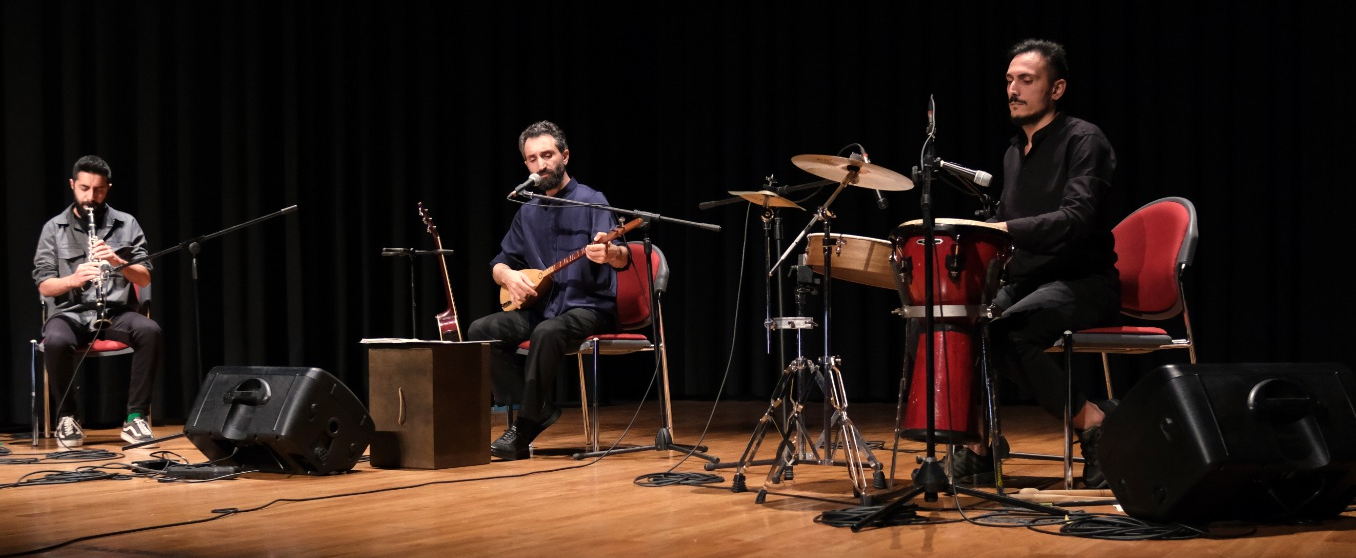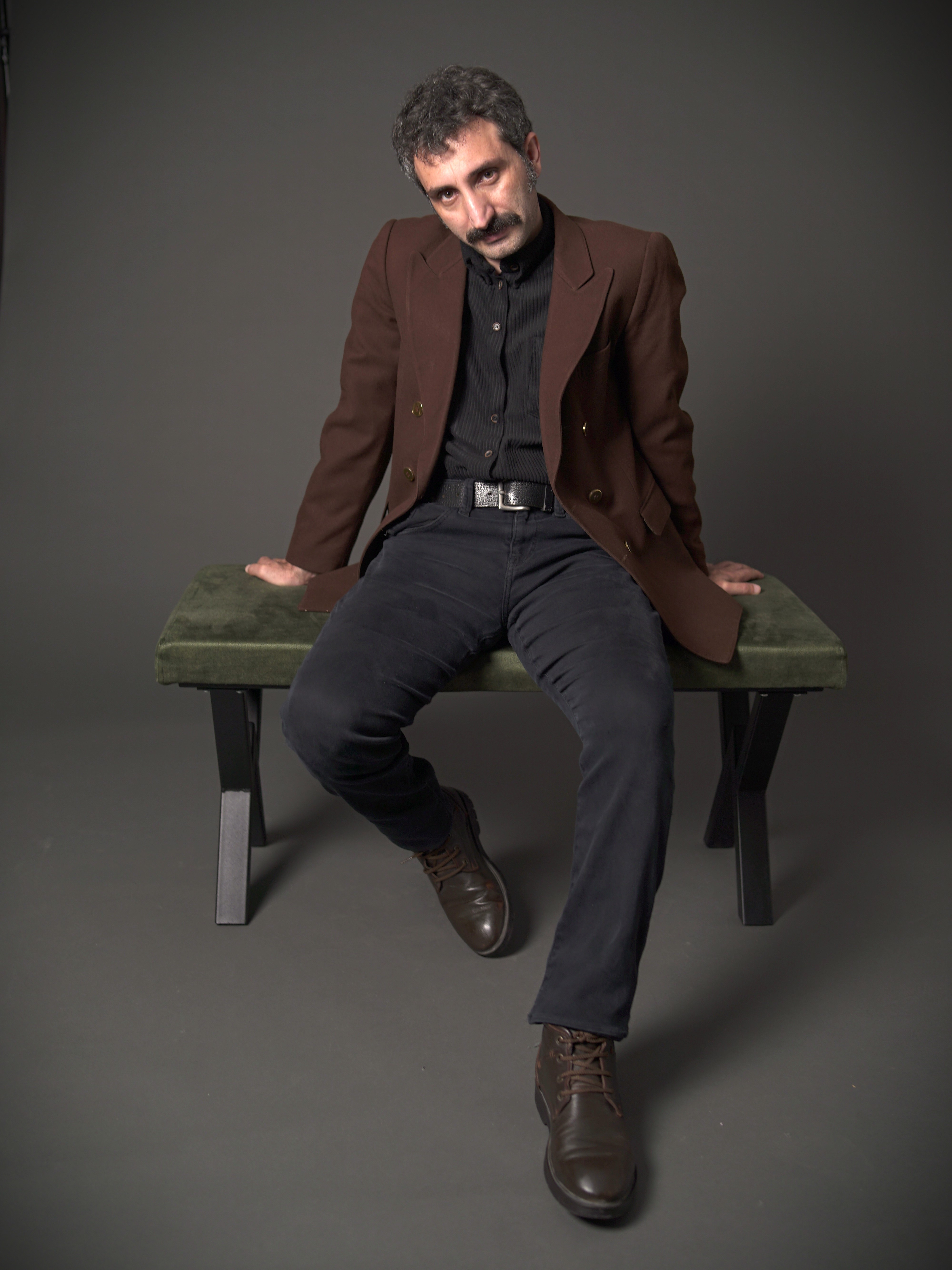Download the complete dossier, here.

Amazing young talent from eastern borderlands of Turkey. A dedicated brilliant young artist. Ali Doğan is a marvelous upstart who defied and excelled in expectations.
Kutay Kugay, programmer/producer/host at Acik Radyo, Istanbul
Ali Doğan Gönültaş is an Anatolyan artist whose magnificent debut album Kiğı, for which he has been working for more than ten years of field research, shows the thrill of his expressive voice, the dreamy melodies of his pieces and his self-confidence, that convinced us to support him in this new stage of his career, after the release of this album. In addition to the concert, Ali Doğan can provide a workshop on rhythm and forms in Kurdish Music
Ali’s concert was a moving journey, specifically to Eastern Anatolia, but also symbolically – to any place where music seems to be above all divisions. The multitude of rhythms and languages specific to this region was not only pleasant and interesting, but also very moving. Remarkable precision, instrumental proficiency and an unforgettable voice meant that each subsequent piece seemed to be an important twist in this story, which the artist had been building for 10 years, collecting ethnomusicological data and respecting various sources.
Ula Nowak, radio journalist, JAZZKULTURA (Poland); host of the program “Świato-czułość | WorldSensitivity”
Ali Doğan is a Kurdish born in Turkey. Graduated from Kocaeli University Archeology and Radio TV and Cinema departments, the musician started his professional music career with the band Ze Tijê, of which he is one of the founders and with which he released two albums and made hundreds of concerts in Turkey.
He took part as a composer, arranger and performer in the studio albums “Yanlışımız Var!” (2015) and “Ur” (2019) released by the group that produces in postrock, collage and experimental genres. Since 2018, he has been continuing his music production with his solo concert series “Xo Bi Xo”. This project, in which the musician includes songs in Kurmanci and Turkish as well as Zazaki, his mother tongue, has an experimental feel to it as well as traditional styles and themes.
In addition, his oral history and field research studies, which he began in 2007, continue with the album “Kiğı”, which he released in 2022. Kiğı, which is also the birthplace of the musician, describes the specific musical language and style of an Anatolian/Mesopotamian settlement.
Ali Doğan Gönültaş dazzles us with songs from a land that has always been a crossroads: the heart of Anatolia. Illuminating songs in Zazaiki, Kurdish, Armenian and Turkish show us the brilliant talent of an artist who has much to offer.
Juan Antonio Vázquez, Mundofonías radio show & Mil Mundos (Radio Clásica, Spanish National Radio), founder of Transglobal World Music Chart
An oral history project turning into a potent and superbly delivered musical journey giving voice to the multicultural styles and repertoires of Eastern Anatolia.
Ciro de Rosa, Blogfoolk (Italy)
Watch the video of the first single, Bostano below. Listen to the album, here.
Kiğı is a personal look at the 150-year musical process of the village of Kiğı, the musician’s birthplace. It consists of works in the regional languages of Krmancki, Kurmanci, Kirdaski, Armenian and Turkish. The project evolved from an “oral history” motivation into a musical memory work. In the project, thematic contents and styles such as govend (traditional Kurdish dance), lament, job songs, prayer forms… are conveyed with the modal characteristics of the region. Learn a bit about this place in a mini-documentary about the creation of the album (Turkish with English subtitles):

Photo of concert in Istambul, 21st October 2022, by M. Sait Taşkıran
Content of the workshop Rhythm and Forms in Kurdish Music
Undoubtedly, one of the greatest possibilities of the centuries-old oral tradition for the Kurds is music. Music is one of the strongest and most important transmitters of many experiences, thoughts and feelings spanning centuries for the Kurds and the peoples they live in the same geography.
In this workshop, basic examples of various thematic and technical forms and systemic variations in Kurdish/Kirmancki music will be explained.
The workshop will begin with key concepts and a brief background. It will continue with examples from some thematic forms (migration, death, work, love, marriage, faith).
The effects of themes on rhythmic structure will be explained with these examples. At the end of the workshop, a song will be sung with all participants.
In the final, a track song by pastoral life will be performed. A simple pronunciation will be made on the text in which the word is written. This song, which has a clear and short sentence structure, will be performed with a choir, just like in the old Kurdish weddings.

